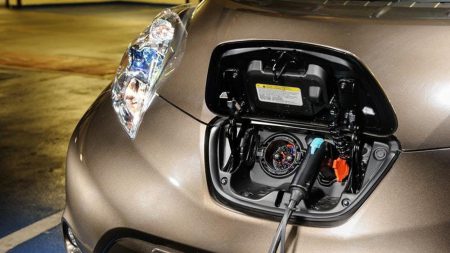The electricity going into electric cars is made by ever-cleaner sources

Electricity used to charge electric vehicles (EVs) is now cleaner than ever before, a study has revealed.
The Electric Insights report, which was produced by Imperial College London researchers and Drax Power, found that electricity generation between April and June this year contained 199g of CO2 per kilowatt hour – 10 per cent less than last year’s minimum set.
This decarbonisation of electricity generation in the UK means that EVs are now cleaner than ever, as the energy used to charge them is increasingly coming from greener sources.
Dr Iain Staffell from Imperial College London said:
“It is widely accepted that electric cars dramatically reduce air pollution in cities, but there is still some debate about how clean they actually are – it varies depending on where the electricity to charge them with comes from.
“According to our analysis, looking at a few of the most popular models – they weren’t as green as you might think up until quite recently, but now, thanks to the rapid decarbonisation of electricity generation in the UK, they are much better.
“For example, producing the electricity to charge a Tesla Model S back in 2012 would have created 124g of carbon per km driven. Nowadays emissions from charging the same car have halved to 74g per km driven in winter and just 41g per km in summer – thanks to the decarbonisation of electricity generation in the UK.
“Smaller electric cars like the Nissan Leaf and BMW i3 can be charged for less than half the CO2 of the cleanest non-electric car on the market – the Toyota Prius hybrid.”
The UK is now home to more than 100,000 electrified vehicles, which now count for 1.8 per cent of new car registrations.
Electric cars are going to become an increasingly common sight on roads around the UK over the next few years. Last month, the government announced that the sale of new petrol and diesel vehicles will be banned by the year 2040 – meaning motorists will have to look to other means of powering their vehicles.
Source: Shorpshire Star
